- Get link
- X
- Other Apps

All our electronic devices are getting smaller, faster and more powerful. In parallel with this, in older versions, gray hair begins to grow. When this happens, we either torment them to the bitter end, or simply throw them out of the story.
But inertia and human nature are fun things. Often, devices that massively penetrate the market linger in our homes, cars, and pockets simply because we are too lazy or stingy to invest in new and better alternatives.
In other cases, old things provide us with a certain nostalgia, and in some cases even surpass the modern descendants. For example, vinyl records, which are not as comfortable and portable as their MP3 colleagues, give a warm sound, attract in terms of aesthetics and are generally very pleasant, as their supporters say.
But most of the devices are not so lucky, especially if it comes to pocket electronics. A whole bunch of products became useless after the appearance of smartphones. When one small phone or computer can do hundreds of tasks very well, it will no longer be necessary to carry around a camera, camcorder, tape recorder, MP3 player, paper cards and ten thousand other things.
Origami nautical nightmare

For centuries, paper maps have provided our ancestors on all continents with useful navigation, safe travel, economic turmoil, and a depressing family vacation. Ordinary cards have a lot of advantages. But even Christopher Columbus did not know how to fold them correctly.
Since 2003, when GPS navigators appeared and smartphones began a victorious march around the world, sales of paper maps have plummeted. Gradually, certain countries have ceased to print their own state cards.
The paper is hard to compete with a device that provides step-by-step instructions and tells you where to go. Of course, if a flash in the sun destroys GPS satellites and cell phone towers, and the apocalypse begins, you will be grateful that you have kept an old, worn and poorly folded paper map for years. But really there are no alternatives?
Extinction alarms

Alarm clocks, ringing, annoying ticking - all this needs to be sent to pterodactyls and tyrannosaurs. The need for alarm clocks has also been exhausted with the advent of smartphones.
Why, really, to spread a couple of hundred rubles for what has long been the usual function of the phone? Someone else buying alarm clocks? The smartphone does not flash when the battery is low. Do not shine your face red. It does not need backup power in the form of a 9-volt battery.
Flash drives
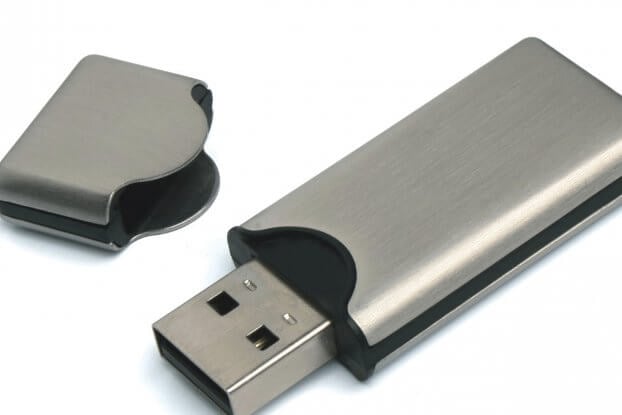
CD-ROMs are slow. Direct cable connection is difficult to establish. Flash drives, unlike these two options, are fast, overwritten and almost instantly recognized by all kinds of devices. And now, when they are ubiquitous, they cost mere pennies.
Flash drives deliver real fun. They store many megabytes or gigabytes of data that can be written to them in minutes for many months. Transmit data at high speed. Look in the form of a keychain, which is very convenient.
True, there is one problem. Now you can access numerous free cloud storage services - for example, Dropbox. Instead of dealing with physical items that are easy to lose, your files will always be accessible from any device connected to the Internet.
Flash drives were cool stuff. Their short stay at the top of the technological mountain flashed too quickly.
Who needs wheels?
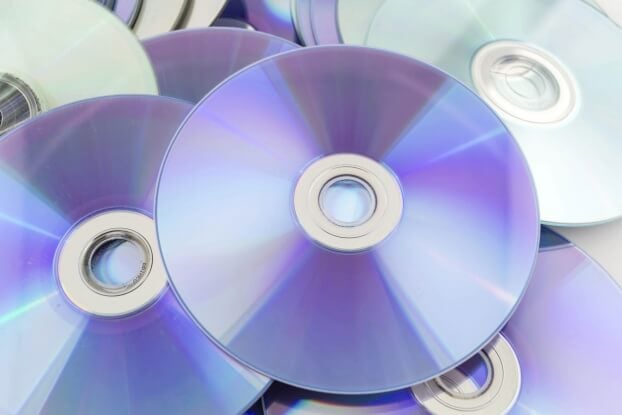
The omnipresent optical disc storing music, film or software is the living corpse of our worst nightmares ... who refuses to die. Yes, an optical disc can store gigabytes of data. Wow.
It is also easy to break. And license discs are too expensive to accidentally drop such and never turn on again. And they also occupy a lot of space. Remember these dusty racks with disks? Memories are memories, but everything comes to an end.
The disks are rather slow. Insert in CD-ROM. Wait. Wait another. Have some tea. Perhaps only then the installer will consider it necessary to start.
iPod and other digital players helped the disks to move into another world. Flash drives and clouds help to do the same CD-ROMs. Nowadays, optical discs and CD drives are a useless addition, not a useful necessity. Streaming services, ubiquitous Wi-Fi, and renting movies are gradually destroying DVD and Blu-ray, which also have no place in our lives.
PDA
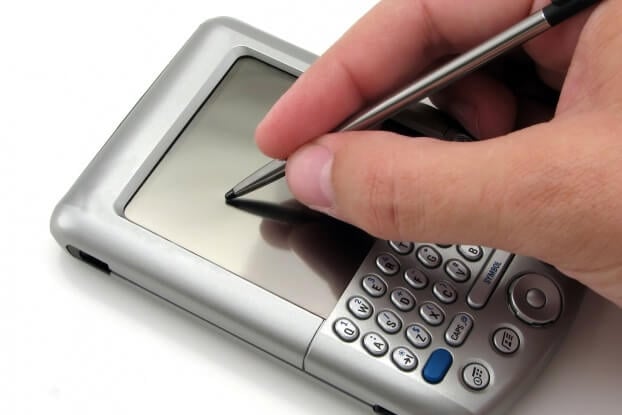
Today they seem so strange. There was a time when the inclusion of notes, a voice recorder and a calendar in one device seemed like an innovation. These wonderful devices were called PDAs (pocket personal computer) and were very cool. But not for long.
In fact, there are still people who use PDAs, despite the fact that the cheapest smartphone is ahead of them in performance. It is something like affection, or something.
Indeed, the exception may be warehouses, hospitals, and other similar companies where workers need a way to track inventory, collect data, or manage products. But it is universally treated with inexpensive tablets.
In addition, we still can not abandon the stylus. Perhaps in ten years or through the efforts of Samsung, we will still return to these wonderful digital pens.
Dial-up access

Worldwide, about 5 percent of people still use dial-up Internet access, the so-called “dial-up” (dial-up). In contrast, 70 percent of people use high-speed broadband access. Their online is essentially, let's say, different.
When you connect via broadband, you can play audio and video on multiple TVs and computers at the same time, while sitting in a tablet and smartphone. If you use dial-up access, the only page in the browser can load a minute.
Of course, the reason for the fact that somewhere in our world technological progress is still lagging behind may be anything from remoteness from civilization to the level of poverty. Nevertheless, this is a problem that needs to be solved, and forget about it, like a bad dream.
Pagers, remember?
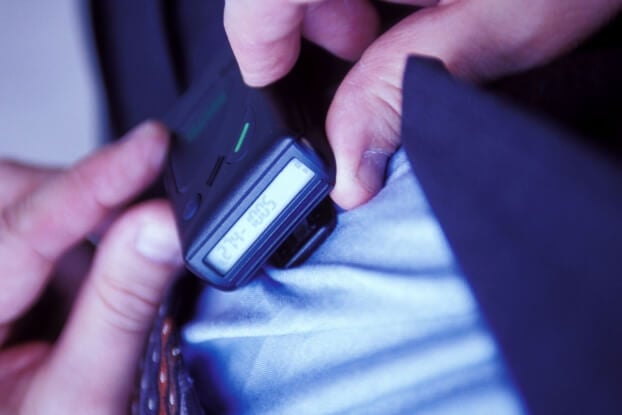
There was a time when the pager on the belt was the equivalent of a Rolex. You were the one who was always in touch. Most often, a doctor or lawyer (or drug dealer). In any case, the pager implied importance. At present, it will only mean that you are hopelessly behind the times.
And yet, not so many years ago, people bought pagers by the millions. In some rare cases, they may work a little more reliably than telephones or something with Internet access. American hospitals still practice paging. They rarely sit down and they have a good connection.
But this is not enough to save the pagers. Like everyone else, doctors prefer multifunctional smartphones and do not want to wear several gadgets. Soon the pagers will remain on the sidelines, and the new generation already does not even know what it is.
Kilometers tape
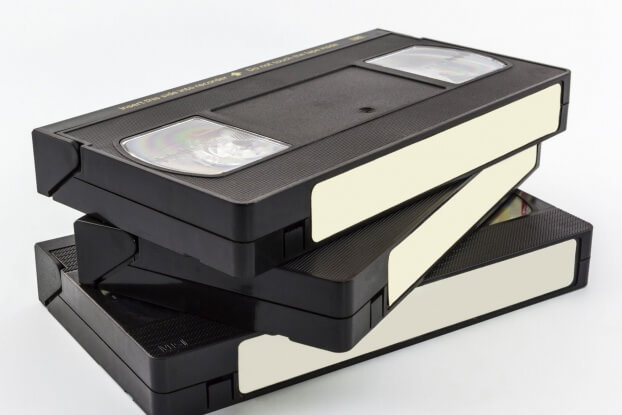
“The familiar VHS tape is quickly following the path of the obsolete 8-track,” wrote the Washigton Post back in 2005. And ten years later, you know what? VHS is not dead yet. At least with us.
People continue to buy VHS cassettes in places. Their ultimate goal is quite difficult to determine. Perhaps they make good book holders. Perhaps the tape is unwound and used as a serpentine. Maybe someone is too sorry that his old video box is just idle.
Nevertheless, in many regions of the world, VHS is remarkably well kept up in the era of DVD and streaming services. The so-called "Vidic" is available in many apartments, even if it is a real rarity. It's time to get away from that.
Compact cameras

Strangely enough, at the same moment, when the pocket cameras reached their peak in quality, they became incredibly useless. Like many other consumer gadgets, these cameras have become victims of smartphones for one reason only: no one wants to carry a smartphone and a camera.
Not that smartphones take good pictures. Most models can hardly be called a good friend of the photographer. But a simple compromise in the form of a camera in your smartphone is easier than another device in your pocket or bag. That is why in 2010, manufacturers sold about 132 million compact cameras, and three years later - 50 million less.
Of course, there are still many people who do not want to acquire smartphones, well, and those who love the quality of small cameras. For everyone else, pocket cameras gradually lose any meaning.
Air against the earth
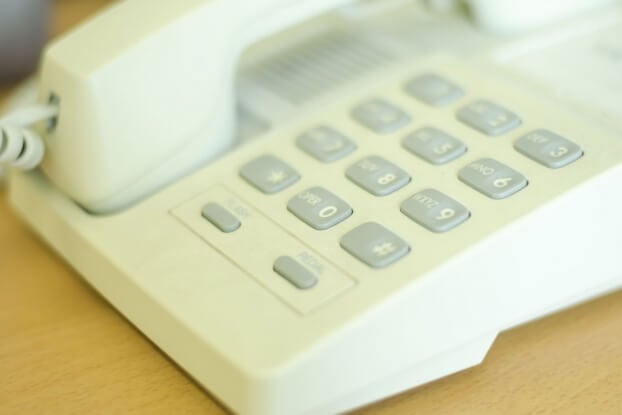
It is like a modern air force against the ancient Romans. There is no competition. There is simply a question of how long it will take for the air forces of cellular technology to eradicate land-based landlines.
For many years, many families have used both services. Mobile phones are for convenience, and traditional landlines are just in case. Most young consumers under the age of 30 do not see the point of paying for the service of fixed and mobile phones at the same time. In an era when almost 90 percent of the population has a mobile phone, landlines will die off more and more quickly.
All technologies are changing and developing, even these fixed phones. But no matter how long they have been with us, in the end they will be replaced by something newer and more convenient.
The article is based on materials .
- Get link
- X
- Other Apps
Comments
Post a Comment